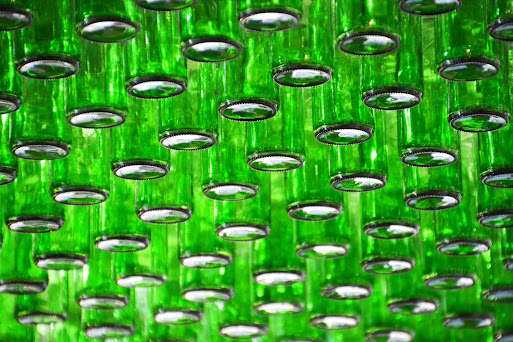Our initial inclination after rinsing a yogurt is frequently to toss it in the garbage. However, it is best to avoid making this gesture as it may have a number of negative effects. The environment is harmed by this. Milk cartons, yogurt pots, and plastic containers should never be rinsed before being disposed of.
We frequently toss yogurt in the garbage as soon as we've rinsed it. This gesture should be avoided, though, since it could have a lot of unfavorable consequences. It's an action that harms the environment. Definitely do not rinse yogurt cups, milk cartons, or plastic containers before throwing them in the garbage.
Before discarding yogurt cups, many consumers may rinse them. After all, they reason, "Clean garbage is better for recycling."
Pollution and energy waste.
The consumer initiative, on the other hand, makes the point that washing dishes consumes water and detergent, which is ultimately bad for the environment.
In waste parks, trash is cleaned and recycled, and some waste is burned to produce energy anyway.
However, it's crucial to remove or empty the bulkiest pieces of the contents.
Avoid using plastic bags marketed as "organic."
Compostable organic plastic bags are available on grocery shelves. However, these still provide issues for businesses that manage and handle garbage. primarily due to two factors Because the bags disintegrate significantly more slowly than the rest of the organic trash, waste management businesses struggle to turn the organic waste into compost.
The use of newsprint is encouraged for customers. You can alternatively use paper bags or bags without plastic fibers.
Green glass and blue bottles
It is also incorrect to assume that upon collecting the containers, the transport vehicles would stuff the various kinds of glass together. Each color of glass has a separate pick-up section within the garbage trucks.
Valued raw materials can be found in old cell phones.
Older cell phones are also subject to rules. Cell phones have no place in the leftover trash. They are to be turned in at the approved drop-off locations.
Appliances used in the home fall under this as well. Some of them have recyclable, precious raw materials. E-waste can be dropped off or collected at recycling facilities and electronics stores.
Batteries should never be thrown away.
Additionally, batteries must be recycled. You are breaking the law if you dispose of them in the garbage. Many pharmacies, supermarkets, electronics retailers, recycling facilities, and the city's Citizen Service Center all have collection bins.
Batteries are a precious raw material, and anyone who discards them in the residual garbage runs the risk of releasing heavy metals into the environment.
Not every piece of paper should go in the trash can.
It's not always necessary to put trash in the trash can, even if it appears to be composed of paper. This covers things like products that are tainted or tarnished with food stains (cosmetics, oil, cleaning agents, etc.).
Paper-based "magazine"-style products, pizza boxes, and wrapping paper do not belong in the trash with other paper waste. To make them shiny, plastic is frequently applied to their surface.
.jpg)


.jpg)